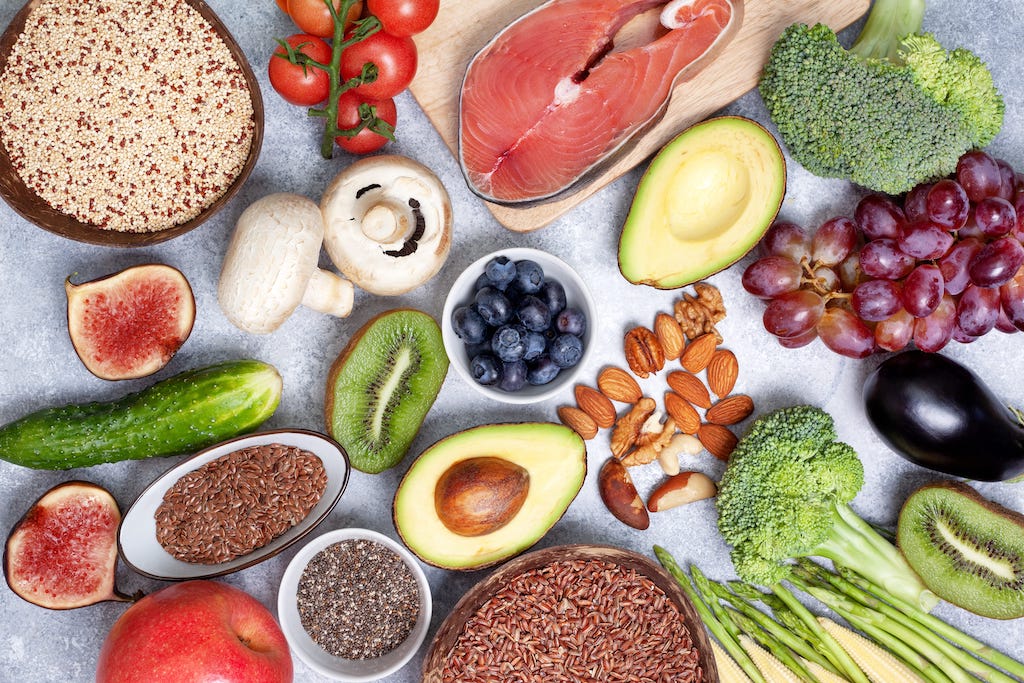Beauty...

By Hilary Sheinbaum
Day in and day out, Lisa Moskovitz, RD, CDN, demystifies nutrition for her clients. With that, it’s no surprise the author of The Core 3 Healthy Eating Plan and the CEO of NY Nutrition Group, are constantly asked about diets, trends, and what really works.
“The most successful diet is one that is personalized, flexible, and easy to sustain.” – Lisa Moskovitz
“If a diet doesn’t work, it’s not your fault; it certainly doesn’t mean that you have no willpower,” she says.
Moskovitz isn’t just answering questions and educating people about facts. She’s often shooting down myths that have been circulating on social media, within the industry, and pesky long-term rumors that have been around for decades.
Without further ado, here are 3 giant myths that you’ve definitely heard before — and the truths behind these falsehoods.
Truth: “Carbohydrates are an essential macronutrient that offer fuel, fiber and assistance with many important functions in the body including digestion, concentration and immune-support,” says Moskovitz.
“Carbs, such as bread, rice, pasta and cereal, are notoriously on the ‘do not eat’ list on my most diet plans because of how they can impact blood sugar and insulin levels. Carb-rich foods break down into glucose which travels through your bloodstream and increases insulin secretion. Insulin then transports the unused glucose into your cells where it’s stored as glycogen. It’s not until those storages in your liver and muscle are at max capacity that the excess carb-derived glucose is converted into body fat. Therefore carbs don’t equate to automatic body fat gain.
You would need to be eating an excess of carbs, especially more refined and quick-digesting types, to see a noticeable change in weight. That said, while I recommend keeping a certain amount of carbs in your eating plan, choosing higher-fiber carbs or replacing some of them with lean proteins, fats and veggies may help move the needle on the scale.”

@clairerose
Truth: “Despite how they’re marketed or common assumption, going on a diet and losing weight is not a guaranteed ticket to good health. You have likely heard the ‘morbidities associated with obesity,’ but dieting to improve your BMI is not always the healthiest solution,” says Moskovitz. “In fact, some diets can actually harm your health if they omit major food groups, are too restrictive, produce rapid weight loss or disrupt your relationship with food.
Not all weight loss diets are created equally although most are designed with one end-goal in mind: a calorie deficit. Make sure to take your time and do your research. Find a plan that is health-promoting, not just about losing as much weight as possible. The healthiest plan will include a variety of foods, even the ones you love. It can also help to work with a dietitian who can tailor weight loss plans to fit your health and medical needs.”
Truth: “It may seem like common sense that if you want to lose weight, you should eat as little as possible. Although it is true that you need to burn more energy than you take in for a calorie deficit, it’s not as simple as the proverbial ‘calorie in vs calorie out.’ There are many factors that affect your body’s willingness to burn fat instead of hoarding it,” says Moskovitz.
“Eating too little may put you in what is often referred to as the ‘starvation zone.’ This is the calorie range right under your weight loss range. Dipping too far down in calorie intake can stress your body out. Stress triggers the fight-or-flight response and potentially adaptive thermogenesis: when your metabolism slows down to accommodate the lower calorie consumption — neither will help you on your weight loss journey.
Instead of playing the ‘how low can you go’ game, first try focusing on eating more balanced, nutrient-dense foods and increasing mindful movement. You may not need to push it too far to see positive changes in how your clothes fit. And if the only way you can lose weight is by eating very little, that may be because your body isn’t ready to lose weight.”
And now that you know the real deal: you can share this knowledge — and this article — with friends!